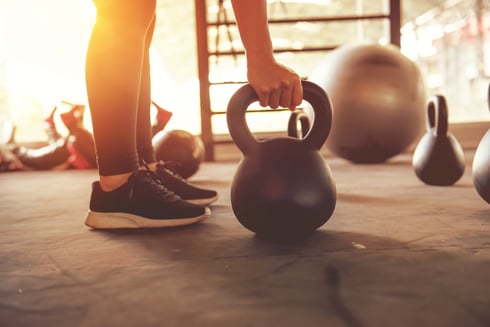 Trying to figure out the best time to work out can be a difficult decision when attempting to balance a healthy lifestyle with work, a social life, and other hobbies. Let’s look at the various benefits of working out at certain times of the day compared to others.
Trying to figure out the best time to work out can be a difficult decision when attempting to balance a healthy lifestyle with work, a social life, and other hobbies. Let’s look at the various benefits of working out at certain times of the day compared to others.
Morning Workouts
Let’s start at the beginning of the day, or morning workouts. The first benefit of working out at this time is that you will already have your workout done for the day. This should give you a sense of accomplishment to start the day and invigorate you for the day ahead and should also make you feel good and boost your confidence, knowing that you have gotten your workout in, leaving the rest of the day available for other tasks such as working, relaxing, hobbies, cooking and eating dinner, or hanging out with friends.
Some studies have shown that working out in the morning provides an increased metabolism, which means that you are going to burn more calories throughout the day. Another study showed that you will get better sleep working out in the morning compared to afternoon/evening because of an increased heart rate and body temperature. Yet another study showed that working out in the morning on an empty stomach before breakfast could increase fat burning.
Afternoon or Night Workouts
The next option for working out is an afternoon/night workout. If you have to be at work very early, it can make workouts difficult to do, especially if your work starts before a club is open. Early workouts are also difficult during the winter months when it’s dark in the mornings. So working out in the evening or afternoon has its benefits as well.
One study shows that your body temperature increases throughout the day, which is good for muscle function, strength, enzyme activity, and endurance for performance. Between 2pm and 6pm your body temperature is at its highest point in the day, which means your body is ready to go, which in turn makes it the most effective time of day to work out. Oxygen uptake is faster in the evening, as well, meaning that you use your body’s resources in a more effective way than in the morning. Working out in the morning may take your body longer to warm up the muscles, which will take away time from the workout itself. Your reaction time is at the quickest in the afternoon and evening. Your heart rate and your blood pressure are the lowest, which decreases your chance of injury while improving performance. One study even found that if you worked out in the morning and did the same workout at night, you had better quality of sleep.
So What's the Best Time to Work Out?
Overall, based on the above-referenced studies, there is no evidence that working out at a specific time of day is more beneficial than another. Whenever you work out, doing so is important for living a healthy lifestyle. Try to decide what time is best for your schedule to get a workout in, and then try to stick with a time so that you can be consistent to see even more training gains.
This blog was written by David Behrmann, NIFS Health Fitness Instructor.To learn more about the NIFS bloggers, click here.


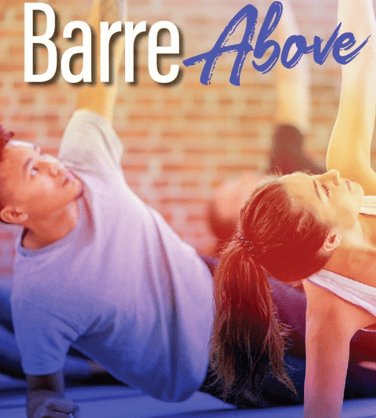 Are you looking for a workout to strengthen and tone muscles without increasing bulk, but have not found anything that you like doing? Have you always wanted to increase your cardiovascular endurance and metabolism but hate doing regular old boring cardio? Well I might have an answer for you…
Are you looking for a workout to strengthen and tone muscles without increasing bulk, but have not found anything that you like doing? Have you always wanted to increase your cardiovascular endurance and metabolism but hate doing regular old boring cardio? Well I might have an answer for you… 
 When you hear about fitness and wellness, one of the first things that comes to mind is getting a workout, usually at a gym, fitness center, or club. Some people can get exercise in other ways, such as outdoor activities and sports, while many others receive plenty of fitness at the workplace (think lumberjacks, steel workers, and factory workers). If none of these sounds like you or if you and you feel as though the fitness route is a tough road to travel, there is hope. There are things you do in your everyday life that give you an opportunity to burn calories.
When you hear about fitness and wellness, one of the first things that comes to mind is getting a workout, usually at a gym, fitness center, or club. Some people can get exercise in other ways, such as outdoor activities and sports, while many others receive plenty of fitness at the workplace (think lumberjacks, steel workers, and factory workers). If none of these sounds like you or if you and you feel as though the fitness route is a tough road to travel, there is hope. There are things you do in your everyday life that give you an opportunity to burn calories.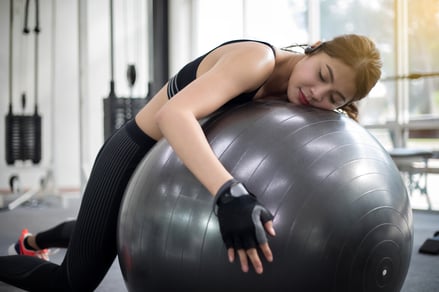 One of the most critical things we do for our health is sleep. Without sufficient sleep, we risk impairing cognitive function, developing chronic diseases and mental disorders, and even an early death.
One of the most critical things we do for our health is sleep. Without sufficient sleep, we risk impairing cognitive function, developing chronic diseases and mental disorders, and even an early death.
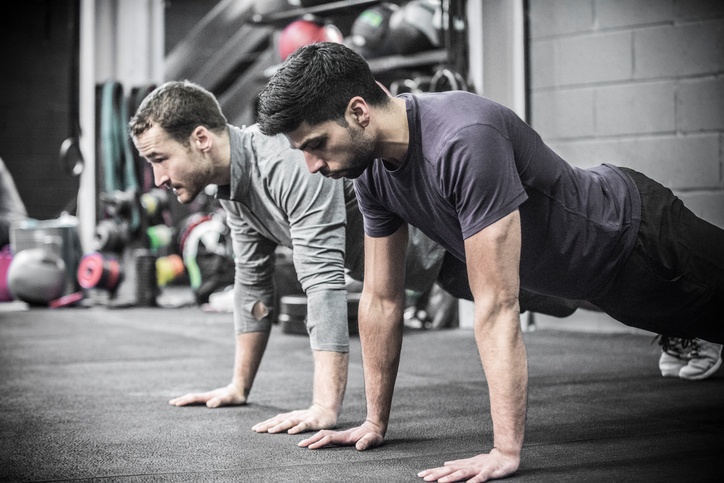 Take yourself back to the 1970s when Arnold Schwarzenegger was preparing for the
Take yourself back to the 1970s when Arnold Schwarzenegger was preparing for the 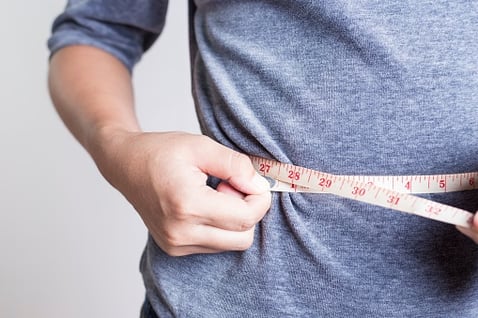 We often hear people talk about their slow metabolism being the reason they cannot lose weight. While this may be true for some individuals, it does not apply to the majority of the population. If you have never actually had blood work done saying you have a slow metabolism, this more than likely is not the issue. Instead of blaming the metabolism, you have to look at the basic “recipe” for weight loss.
We often hear people talk about their slow metabolism being the reason they cannot lose weight. While this may be true for some individuals, it does not apply to the majority of the population. If you have never actually had blood work done saying you have a slow metabolism, this more than likely is not the issue. Instead of blaming the metabolism, you have to look at the basic “recipe” for weight loss.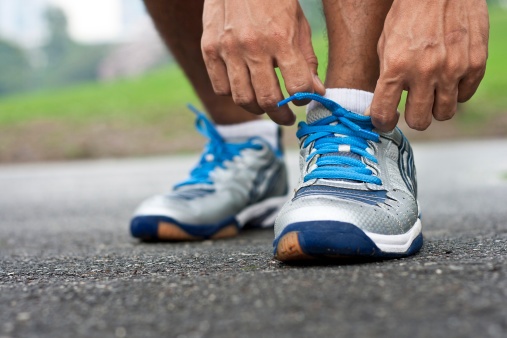 Do You Just Need to Move More?
Do You Just Need to Move More?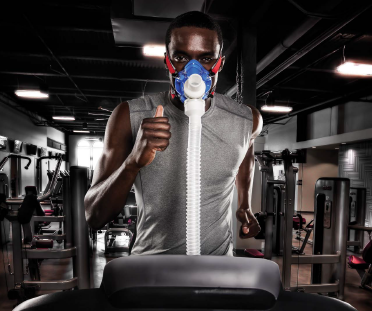 VO2 Max testing is a test to quantify the efficiency of your heart and lungs during exercise. Why is this important? An athlete who wants not only to improve times, but also to see if their training is effective, can find training zones (based on their testing) and progress based on specific training over time.
VO2 Max testing is a test to quantify the efficiency of your heart and lungs during exercise. Why is this important? An athlete who wants not only to improve times, but also to see if their training is effective, can find training zones (based on their testing) and progress based on specific training over time. For individuals who want to know how many calories they burn in a day (their metabolism), the RMR test is your main tool to finally take off the blindfold and know exactly how to budget your calories to match your goals, whether it is weight loss or weight gain.
For individuals who want to know how many calories they burn in a day (their metabolism), the RMR test is your main tool to finally take off the blindfold and know exactly how to budget your calories to match your goals, whether it is weight loss or weight gain.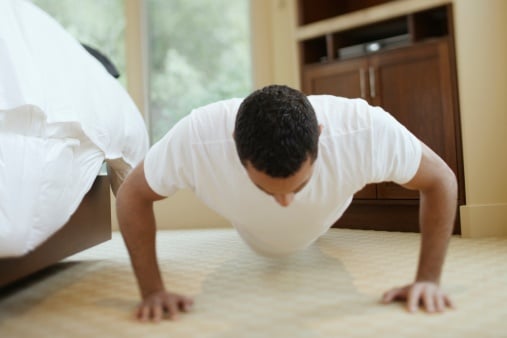 Okay, so maybe you’re not a morning person, and would much rather remain cozy in your queen-sized bed for several hours after waking up before finally finding the energy and motivation to make your way to the gym during the middle of the day. Maybe you’re the type of person who likes to take care of your priorities first during the day, and then only if left with enough time sneak in a late-afternoon or nighttime workout before ending your day.
Okay, so maybe you’re not a morning person, and would much rather remain cozy in your queen-sized bed for several hours after waking up before finally finding the energy and motivation to make your way to the gym during the middle of the day. Maybe you’re the type of person who likes to take care of your priorities first during the day, and then only if left with enough time sneak in a late-afternoon or nighttime workout before ending your day.
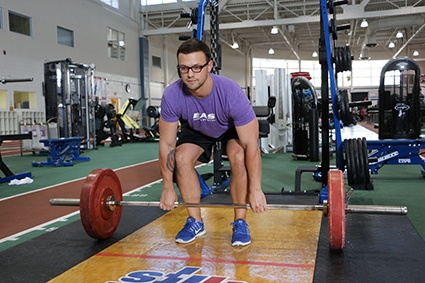 At times you may hear somebody at the gym or fitness center saying, “I don’t want to look like a bodybuilder,” or “I don’t want to be a powerlifter.” That’s great! That person knows their goals and also what they want to avoid. However, don’t let your specific goals cause you to have myth-generated fears of certain exercises.
At times you may hear somebody at the gym or fitness center saying, “I don’t want to look like a bodybuilder,” or “I don’t want to be a powerlifter.” That’s great! That person knows their goals and also what they want to avoid. However, don’t let your specific goals cause you to have myth-generated fears of certain exercises.